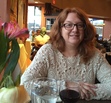An Unnecessary Divide
We live in a time of labels and hyperbole and I don’t like it. Too many groups are being defined by labels that are then used to stereotype and marginalize. This tendency has been brought to my attention with two particular groups since my trip to Switzerland. The groups in question are the Poles and the Jews. I am not an expert in this area, but let me explain to the best of my ability.
Earlier this year the Polish government passed a controversial law that made it a criminal act to accuse Poland of helping the Nazis exterminate the Jews.* For example, this law made it illegal to call Auschwitz a “Polish death camp.” The truth is that Auschwitz was a Nazi death camp and it was located in Poland. The law is controversial because many people see it as an attempt to rewrite history. You can’t dictate history — what happened happened. But for many people the law is more than a controversy or an inconvenience. It affected careers. Historians were personally attacked for their research on Poland. And they sued for libel.
My understanding, albeit limited, of Poland during the Holocaust is that many, many people did horrible things. Germans** murdered Jews and Poles alike. Germans** set up a system of fear. Often people were faced with a choice of kill or be killed. Some Poles handed their Jewish neighbors over to the Gestapo or actively participated in their murders. At the same time, there were heroic acts happening in German-occupied*** Poland. People like Irena Sendler and Jan and Antonina Zabinski (The Zookeeper’s Wife) rescued large numbers of Jews, and many, many Poles sheltered their Jewish neighbors.
These same types of savage and courageous actions happened all over Europe. Some people chose to join forces with the Nazis. Others chose to resist. Many traded their morality for their own lives. Given some of the impossible choices people faced, I dare not predict what I would have done in similar circumstances.
When I went to Switzerland last month I briefly spoke with Polish President Andrzej Duda. I met Ambassador Kumoch and Honorary Consul Blechner. I met their staffs. I had many conversations with these Poles and I found them humble, honest, and warm. We were celebrating the fact that a group of six men — three Polish diplomats, Ładoś, Rokicki, and Ryniewicz, and three Jews, Kühl, Silberschein, and Eiss — worked together to save as many Jews as possible. They broke Swiss and international laws. They wrote letters to dignitaries around the world. They created false passports and sent them to Jews around Europe on the premise that the Nazis would use these newly anointed South Americans in trades for German nationals and POWs.
Since my trip to Switzerland I have seen nasty posts from both sides of this Jewish/Polish divide. Who is contributing to this name calling? Jews that are anti-Polish? Poles that are anti-Semitic? People who like to stir up trouble? Each group blaming the other for wrongs done to their people in the past. We need to stop lumping people into groups and identifying them by one characteristic. We need to stop looking at various people as “other.”
[image error]When my mother tells about her Holocaust survival she always talks about the false Paraguayan passport that saved her family. It turns out it was created by a group of men, Polish and Jewish, working together to save lives. My mother never knew where that passport came from. We only figured this out in the last year.
Right now there are historians around the world — Jewish, Polish, Swiss, American, Israeli — working together to understand the whole story of these passports. History isn’t static. It is still being discovered. We’re still finding truths that were buried in the rubble. My wish is that today we’ll discover that listening to each other and getting along is better than pointing fingers and fighting. My hope is that we drop the labels. And my goal is that together we can continue to uncover the truth — that all men and women are created equal and deserve a fighting chance at a decent life.
My interview with the Polish press corps
*A few months later the Polish government softened the law taking out the criminal penalties.
**After a few comments I realize that my original word here, Nazi, is offensive to some as it leaves out the fact that Germany created the Nazis. So I have corrected myself and changed the term to “German” twice.
***One more correction – Poland soil was no longer Poland at this time. It was occupied by Germany and was not being ruled by a Polish government. So “German-occupied Poland” may be more accurate.



